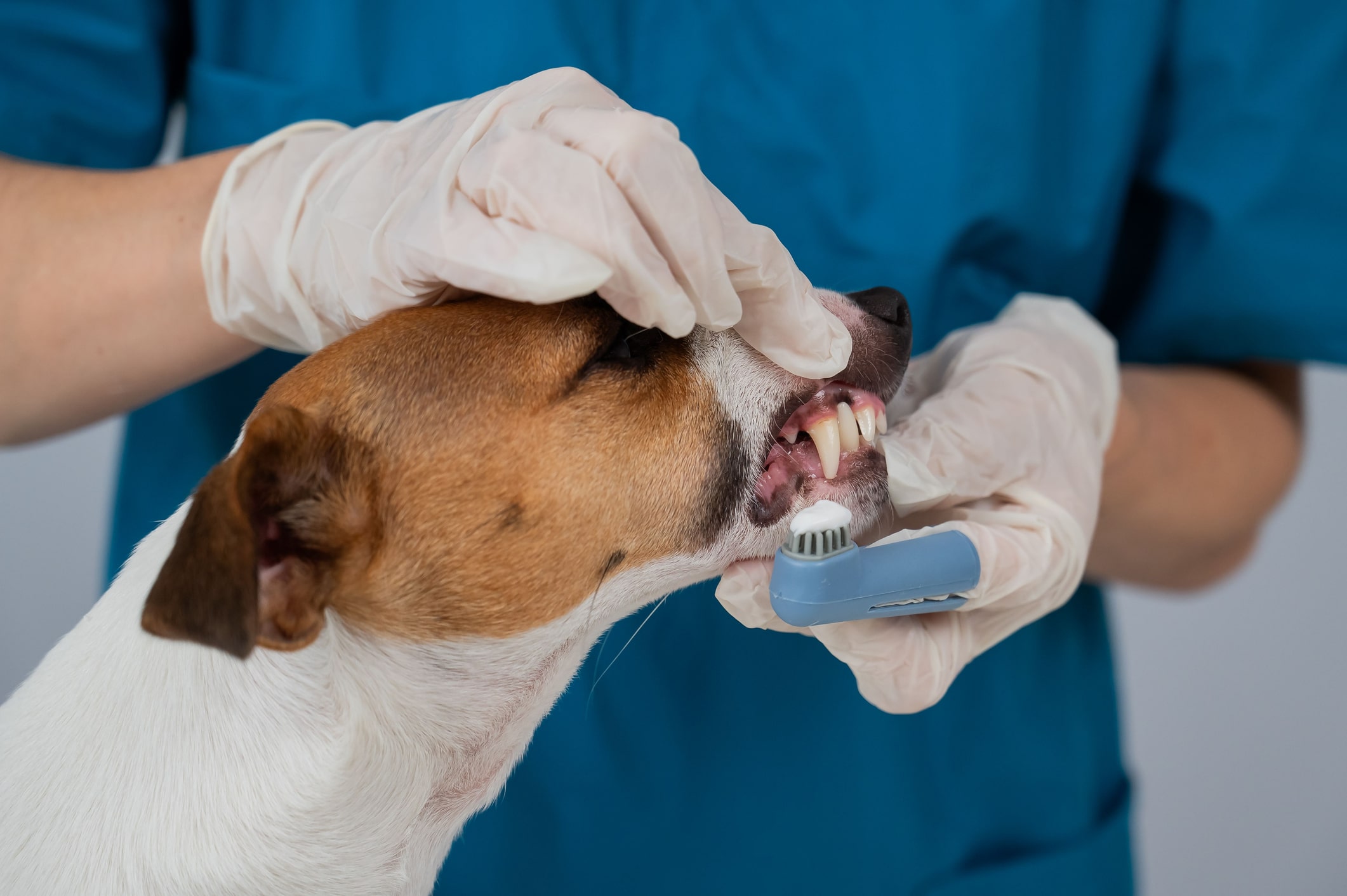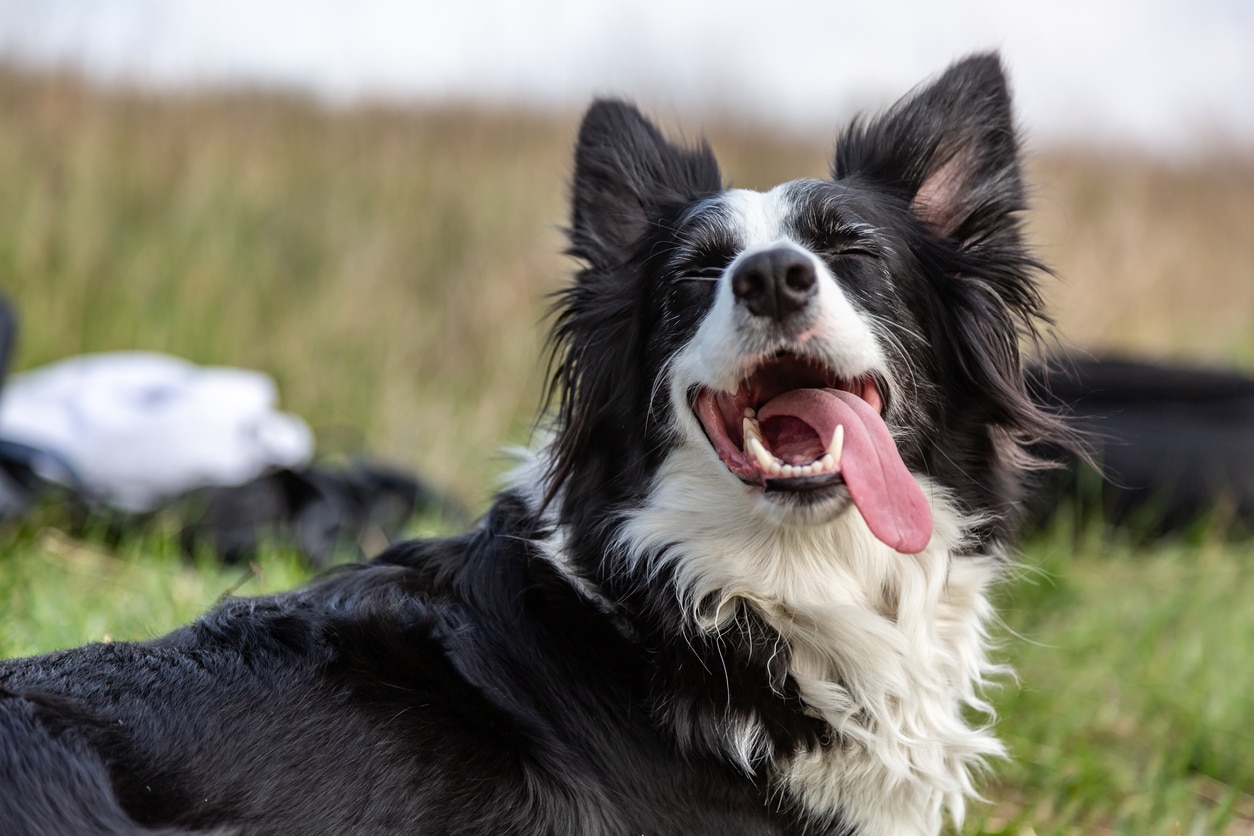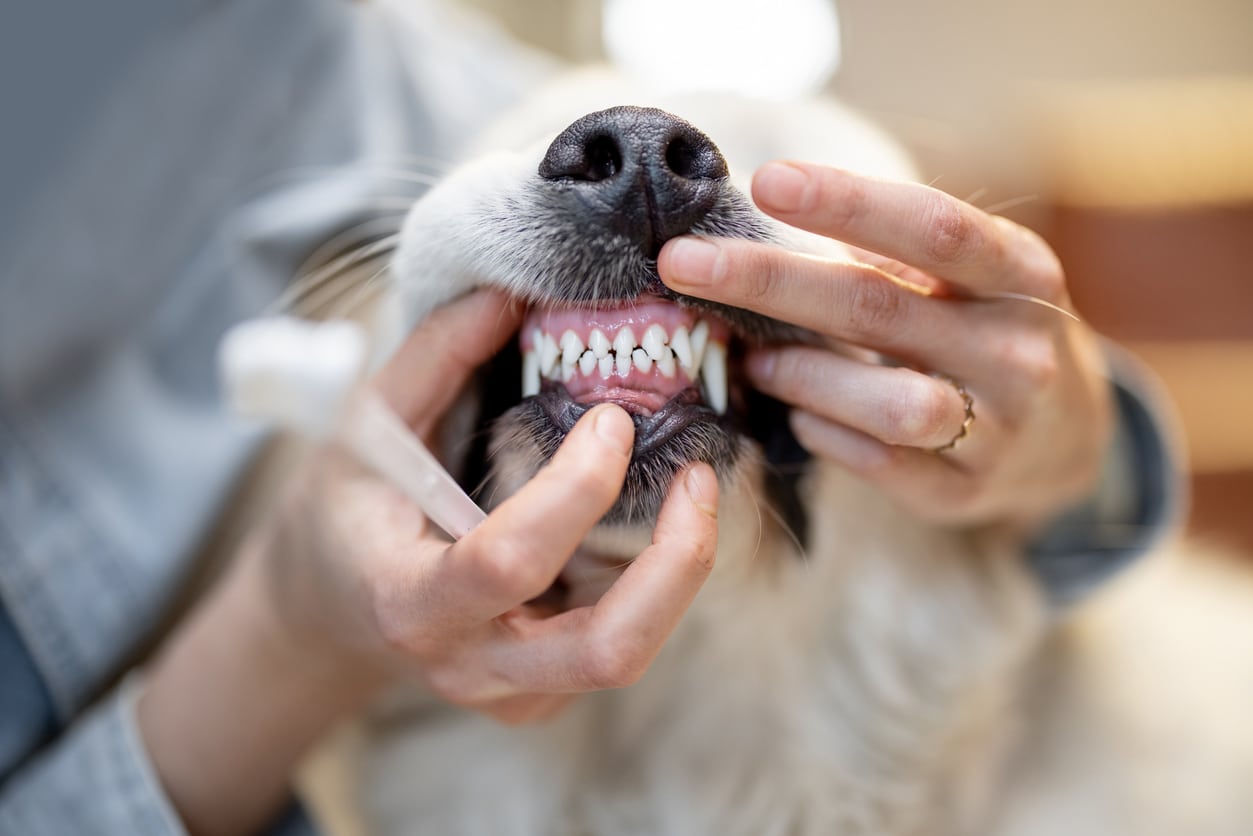Dog Tooth Extractions in Myrtle Beach, SC
Dog Tooth Extractions in Myrtle Beach, SC
A pet’s tooth may need to be extracted due to a variety of reasons, including severe tooth decay, advanced gum disease, or periodontal disease. If a dog’s tooth is diseased, decayed, or causing pain, it can lead to more serious dental issues. A decayed or infected tooth can significantly affect the tooth root, causing discomfort and making it difficult for the dog to eat. Proper dental care and routine checkups with a veterinary dentist can help prevent the need for tooth extractions in the future.
Benefits of Dog Tooth Extractions for Long-Term Health
Relieves Pain and Discomfort
A successful dog tooth extraction removes the problematic individual tooth, alleviating pain and improving your pet’s overall comfort.
Prevents Further Dental Complications
By removing a diseased tooth, the dental procedure helps stop the spread of infection or decay to nearby teeth, safeguarding your dog’s dental health and preventing more severe issues down the line.
Improves Eating and Chewing
After a dog tooth extraction, your pet may experience improved ability to chew, especially if the extracted tooth was causing difficulty. This can lead to better eating habits and overall nutrition.
Enhances Overall Dental Health
A well-executed dental procedure addresses underlying dental disease, helping to maintain a healthy pet and reducing the risk of future tooth extractions or other dental problems.


Benefits of Dog Tooth Extractions for Long-Term Health
Relieves Pain and Discomfort
A successful dog tooth extraction removes the problematic individual tooth, alleviating pain and improving your pet’s overall comfort.
Prevents Further Dental Complications
By removing a diseased tooth, the dental procedure helps stop the spread of infection or decay to nearby teeth, safeguarding your dog’s dental health and preventing more severe issues down the line.
Improves Eating and Chewing
After a dog tooth extraction, your pet may experience improved ability to chew, especially if the extracted tooth was causing difficulty. This can lead to better eating habits and overall nutrition.
Enhances Overall Dental Health
A well-executed dental procedure addresses underlying dental disease, helping to maintain a healthy pet and reducing the risk of future tooth extractions or other dental problems.

Preparing for Tooth Extraction Surgery at Coastal Veterinary Care
Before your dog’s tooth extraction at Coastal Veterinary Care in Myrtle Beach, SC, a pre-surgery consultation will help assess their dental health and answer any questions. Your pet may need to fast for 12 hours beforehand, and a dental cleaning might be done to reduce infection risk. Prepare a quiet recovery space at home and follow all aftercare instructions for the recovery process. On surgery day, keep your dog calm and comfortable to ease stress.

Preparing for Tooth Extraction Surgery at Coastal Veterinary Care
Before your dog’s tooth extraction at Coastal Veterinary Care in Myrtle Beach, SC, a pre-surgery consultation will help assess their dental health and answer any questions. Your pet may need to fast for 12 hours beforehand, and a dental cleaning might be done to reduce infection risk. Prepare a quiet recovery space at home and follow all aftercare instructions for the recovery process. On surgery day, keep your dog calm and comfortable to ease stress.
Understanding the Dog Tooth Extraction Procedure
What Happens During the Surgery
Before the extraction, your dog will undergo a pre-surgery evaluation at Coastal Veterinary Care, where the veterinarian will assess their dental health and determine if a tooth extraction is needed. The dental surgery is performed under general anesthesia to ensure your dog remains still and pain-free throughout the surgery. The veterinarian will then carefully remove the decayed or diseased tooth, which may involve loosening the root and severing the periodontal ligament for a safe extraction.
Post-Surgery Care and Recovery
After the extraction, your dog will be closely monitored for any signs of complications, and pain medication will be given to manage discomfort. At home, you’ll need to provide a quiet, comfortable space for rest and follow the vet’s post-op instructions for care. The veterinarian may schedule a follow-up visit to ensure proper healing of the extraction site and check your dog’s teeth and the recovery progress.


Understanding the Dog Tooth Extraction Procedure
What Happens During the Surgery
Before the extraction, your dog will undergo a pre-surgery evaluation at Coastal Veterinary Care, where the veterinarian will assess their dental health and determine if a tooth extraction is needed. The dental surgery is performed under general anesthesia to ensure your dog remains still and pain-free throughout the surgery. The veterinarian will then carefully remove the decayed or diseased tooth, which may involve loosening the root and severing the periodontal ligament for a safe extraction.
Post-Surgery Care and Recovery
After the extraction, your dog will be closely monitored for any signs of complications, and pain medication will be given to manage discomfort. At home, you’ll need to provide a quiet, comfortable space for rest and follow the vet’s post-op instructions for care. The veterinarian may schedule a follow-up visit to ensure proper healing of the extraction site and check your dog’s teeth and the recovery progress.
What Happens During the Surgery
Before the extraction, your dog will undergo a pre-surgery evaluation at Coastal Veterinary Care, where the veterinarian will assess their dental health and determine if a tooth extraction is needed. The dental surgery is performed under general anesthesia to ensure your dog remains still and pain-free throughout the surgery. The veterinarian will then carefully remove the decayed or diseased tooth, which may involve loosening the root and severing the periodontal ligament for a safe extraction.
Post-Surgery Care and Recovery
After the extraction, your dog will be closely monitored for any signs of complications, and pain medication will be given to manage discomfort. At home, you’ll need to provide a quiet, comfortable space for rest and follow the vet’s post-op instructions for care. The veterinarian may schedule a follow-up visit to ensure proper healing of the extraction site and check your dog’s teeth and the recovery progress.

Additional Dental Services for Dogs in Myrtle Beach, SC
Routine Dental Cleanings & Oral Health Care
In addition to treating dental issues, we offer routine dental cleanings to help prevent plaque buildup, gum disease, and bad breath. Regular cleanings are key to maintaining your pet’s overall health and comfort.
Pet Dental Evaluations & Education
Our team will review dental exam findings with you using photos to explain our recommendations and treatment plans. We also encourage pet insurance for dental coverage, especially for small-breed dogs and cats who are more prone to oral health problems.

Additional Dental Services for Dogs in Myrtle Beach, SC
Routine Dental Cleanings & Oral Health Care
In addition to treating dental issues, we offer routine dental cleanings to help prevent plaque buildup, gum disease, and bad breath. Regular cleanings are key to maintaining your pet’s overall health and comfort.
Pet Dental Evaluations & Education
Our team will review dental exam findings with you using photos to explain our recommendations and treatment plans. We also encourage pet insurance for dental coverage, especially for small-breed dogs and cats who are more prone to oral health problems.
FAQs
How long will my dog need to recover after a tooth extraction?
The recovery time for a dog after a tooth extraction can vary, but most dogs typically take about 7-10 days to heal. During this period, it’s important to follow the vet’s post-op instructions and monitor for any signs of complications (no tugging games or bone chewing). A follow-up visit may be scheduled to ensure your dog’s teeth are healing properly.
Will my dog experience pain after the tooth extraction?
While your dog may experience some discomfort after the surgical procedure, the veterinarian will administer pain medication to manage any post-surgery pain. It’s important to follow the vet’s instructions on administering medication and keeping your dog comfortable during their recovery.
Can my dog eat normally after the tooth extraction?
After the extraction process, your dog may need to follow a soft food diet for a few days to avoid irritating the extraction site. Avoid hard or crunchy food during the healing process, as it can cause discomfort or slow down recovery. Your veterinarian will provide detailed feeding instructions based on your dog’s individual needs.
Expert Pet Tooth Extractions at Coastal Veterinary Care in Myrtle Beach, SC
When your pet requires a dog tooth extraction, Coastal Veterinary Care in Myrtle Beach offers compassionate and comprehensive dental services. Our team of Fear Free Certified professionals ensures that your pet experiences minimal stress during the procedure. Utilizing general anesthesia, we perform thorough oral examinations, including dental X-rays, to assess the condition of each individual tooth. If a diseased tooth is identified, our veterinary team will carefully perform the dental extraction, alleviating pain and preventing further complications. Post-surgery, your pet will receive appropriate pain management and aftercare instructions to support a smooth recovery.
Coastal Veterinary Care is also AAHA-accredited, meeting over 900 standards of veterinary excellence. Our in-house pharmacy and commitment to client education make us a trusted choice for your pet’s dental health. If you’re in the Myrtle Beach area and your pet needs a dog tooth extraction, don’t hesitate to contact us.
